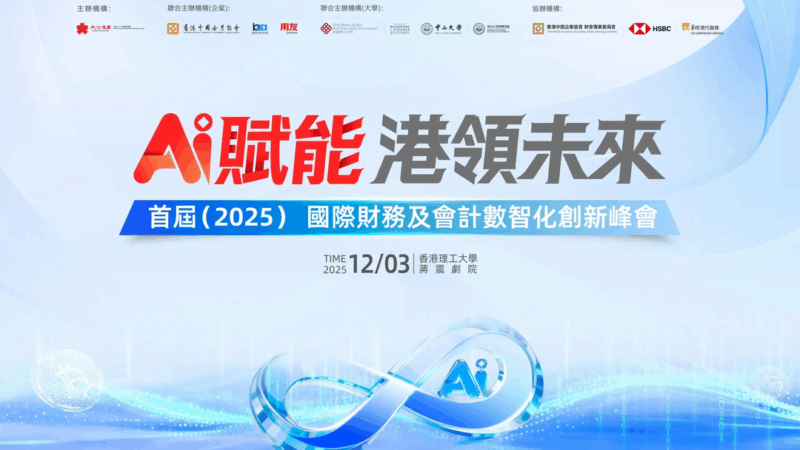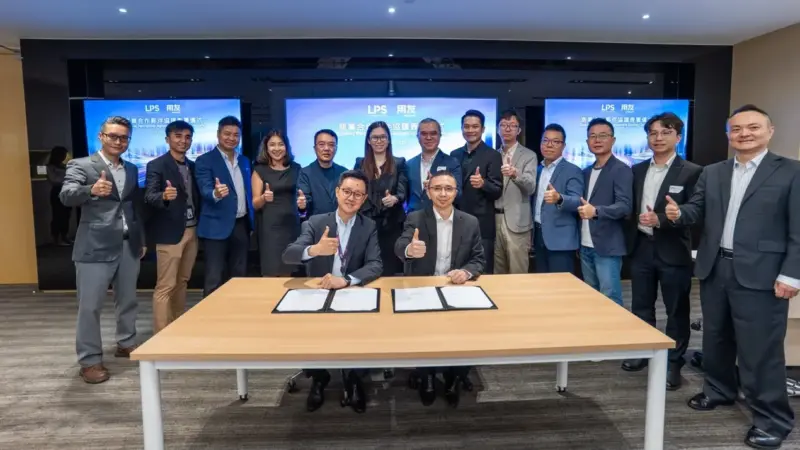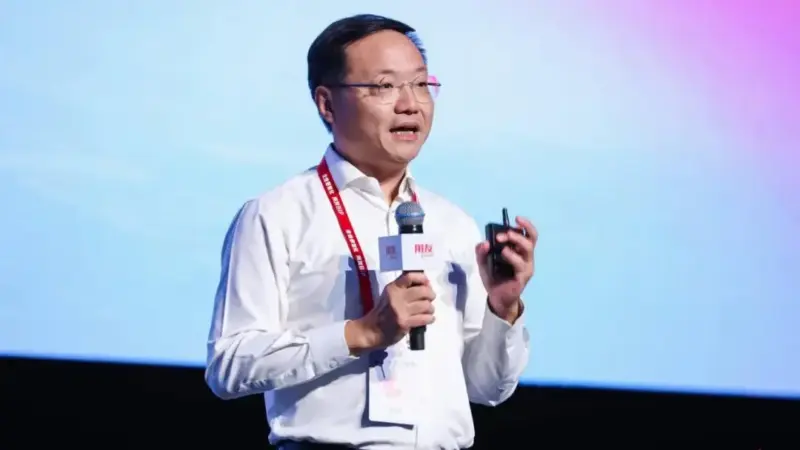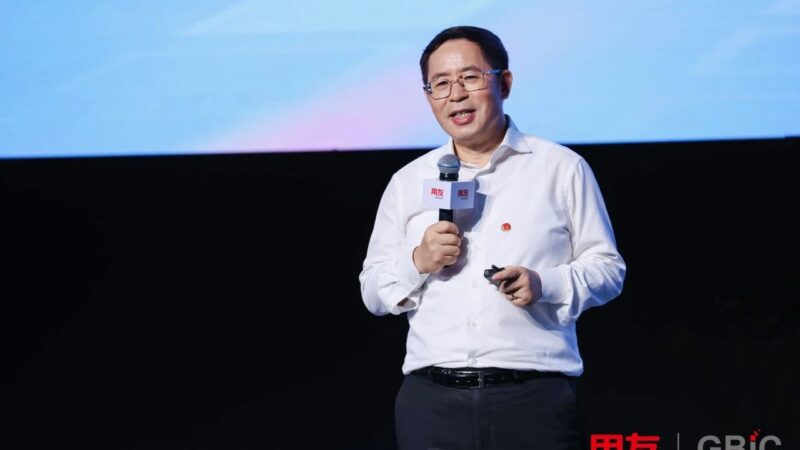From August 15 to 17, 2025, Yonyou hosted the Global Business Innovation Conference (GBIC·2025) in Shenzhen. During the event, Wang Wenjing, Chairman and CEO of Yonyou Network, delivered a keynote speech titled “Implementing AI in Enterprises”, emphasizing that China’s new generation of enterprise software is now competitive in the global market. He stated that in the digital-intelligent era, Chinese enterprise software and intelligent service platforms will lead the world, much like China’s mobile internet platforms and new energy vehicles.
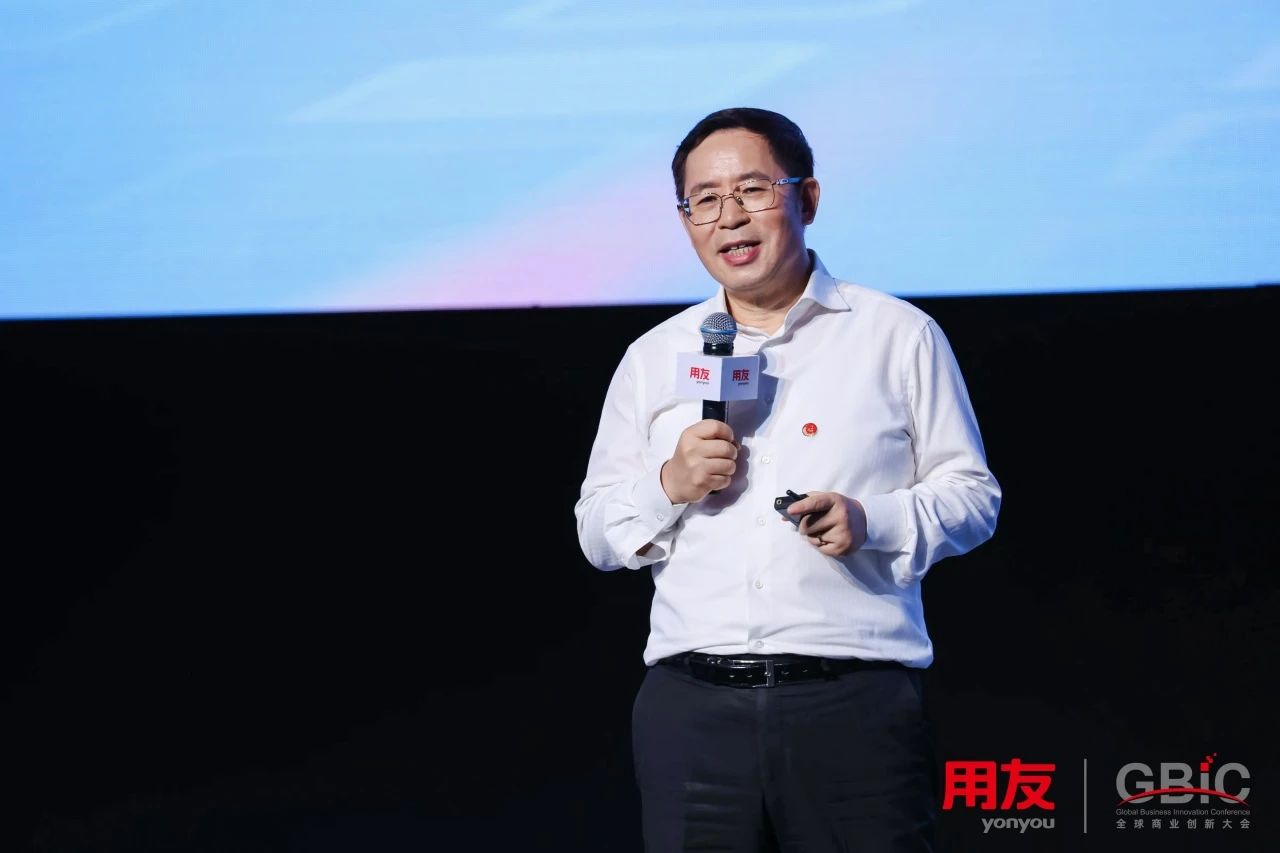
Three Key Steps for Successful AI Implementation in Enterprises
With the rapid advancement of AI technology—spurred by initiatives like DeepSeek’s surge during the Spring Festival—AI in Chinese enterprises has moved beyond awareness into widespread application. AI is deeply integrating across industries and has become a key driver of new quality productivity. According to CCID Consulting, the global AI agent market is expected to grow at a CAGR of over 40% in the next five years. IDC predicts that by 2026, 50% of China’s top 500 enterprises will use AI agents for data preparation and analysis.Enterprises, as the main arena for AI application, are facing unprecedented strategic opportunities. Wang Wenjing highlighted four factors driving China’s leadership in AI adoption: a advanced digital business environment, breakthroughs in foundational AI technologies like large models, strong embrace of AI from leadership to frontline, and active government support. He predicts that Chinese enterprises will lead the world in AI adoption.
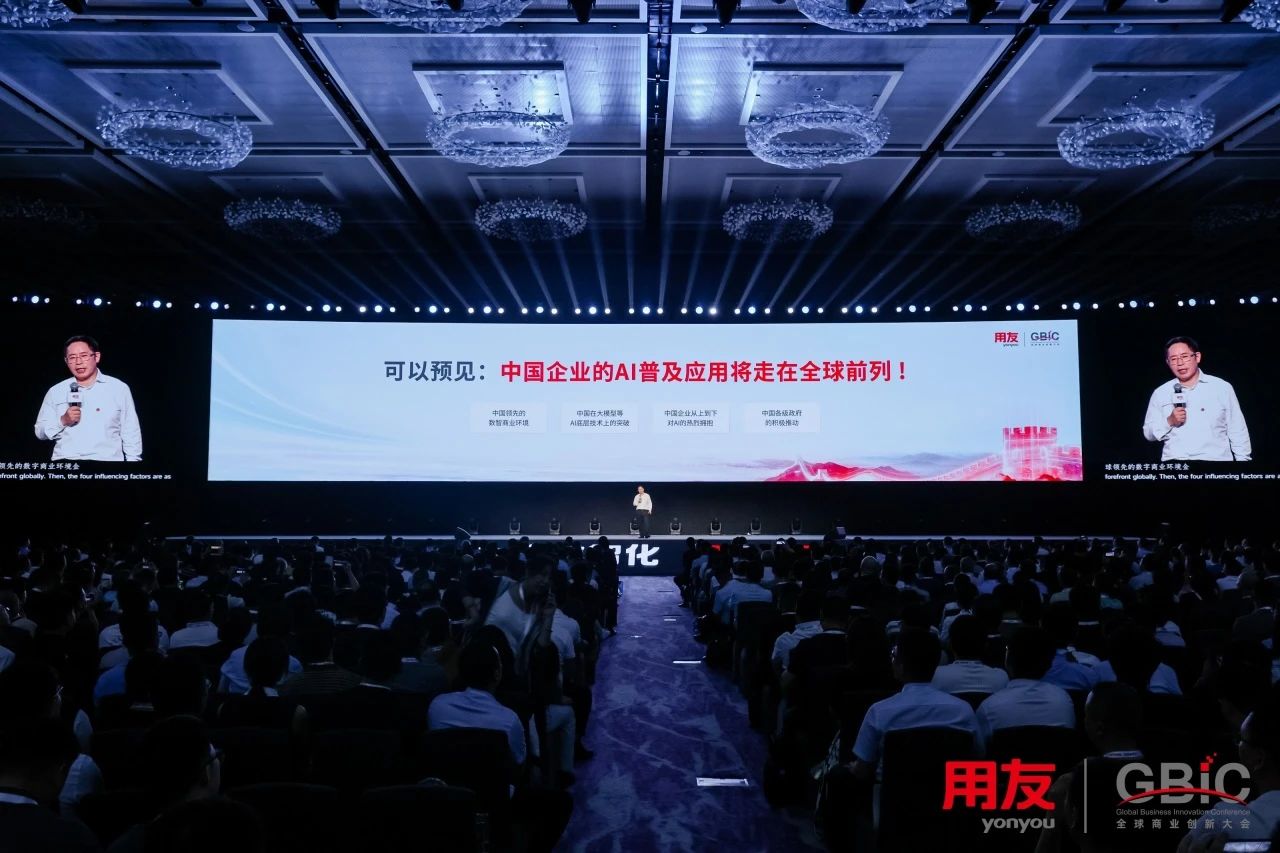
The core goals for enterprises applying AI are clear: improve efficiency, reduce costs, enable precise operations, and control risks. To achieve successful AI implementation, Wang emphasized that while deploying large models is necessary, it is not sufficient. Enterprises must focus on three areas:
- Upgrade to a new generation of digital-intelligent enterprise software.
- Strengthen data governance and knowledge management.
- Integrate mainstream and vertical large models.
Six Ways AI Is Transforming Enterprise Software
AI is not only reshaping business management and operations but also revolutionizing the enterprise software industry itself. Wang outlined six major changes:
- Enterprise software now exceeds traditional capabilities, moving from recording and coordination to perception, reasoning, and autonomous decision-making.
- The model layer (MaaS) has become a strategic component, forming a model matrix.
- AI agents (Agents) represent a new form of software, enabling more flexible applications and services.
- User interaction has shifted from “menu-based operation” to “natural collaboration,” evolving from passive tools to active partners.
- Payment and business models may transition to outcome-based pricing.
- AI provides high-productivity tools for R&D, delivery, and service, enabling intelligent development and operation.
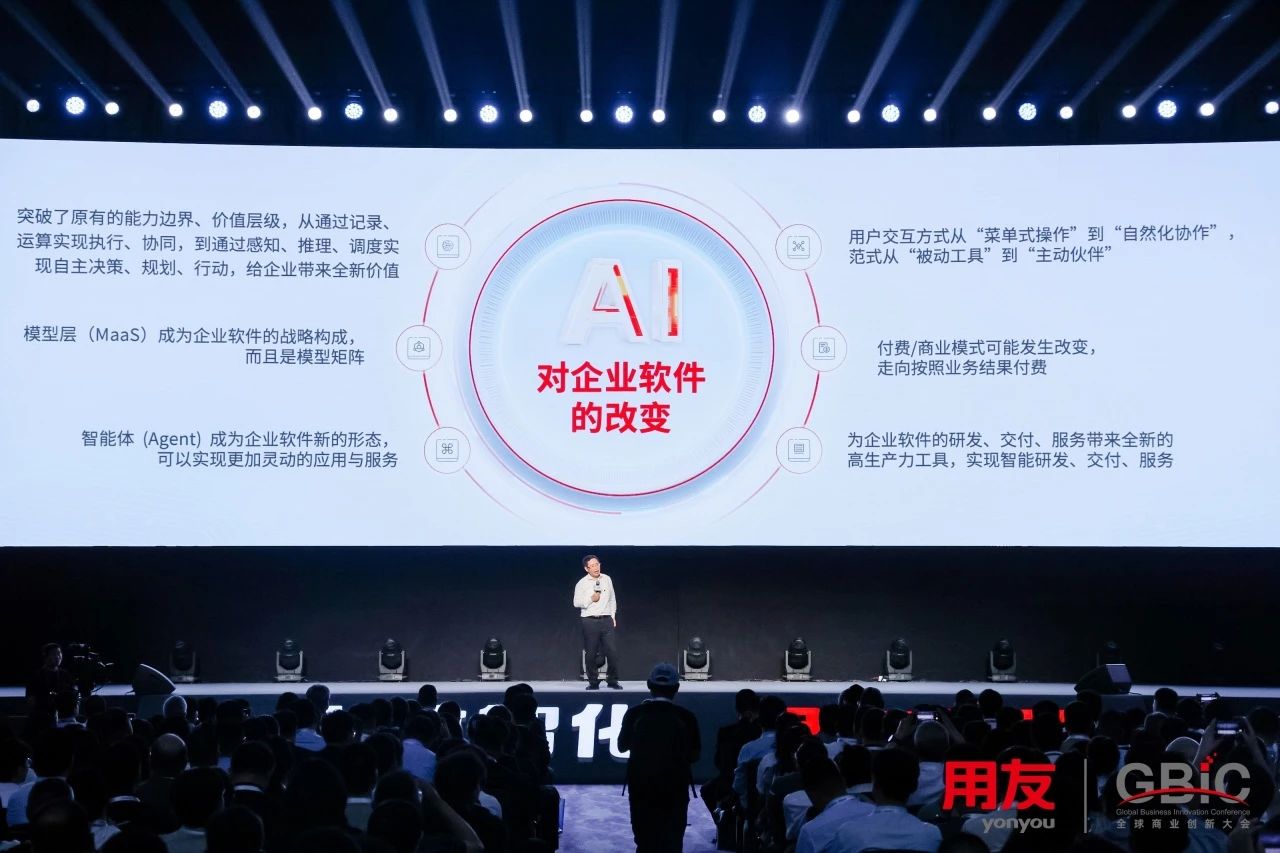
As a leading provider of enterprise software in China, Yonyou continues to drive innovation with its flagship product, Yonyou BIP, designed for digital-intelligent transformation. Unlike traditional ERP systems, BIP represents a new generation of enterprise software that delivers greater value through native integration across four dimensions:
- Native integration of AI, data, and processes to enable effective AI implementation.
- Unified platform, domain applications, and ecosystem.
- End-to-end integration across ten major business areas including finance, HR, and supply chain, enabling group-wide sharing and control.
- Collaboration between core enterprises and their industrial chain partners, extending digital capabilities across the entire value chain.
This native integration eliminates application silos, data isolation, and fragmented intelligence.
Chinese Enterprise Software Set to Lead Globally
Driven by the AI wave, enterprises in China and worldwide are accelerating digital-intelligent transformation. A growing number of global companies are adopting or upgrading to China’s new generation of enterprise software and intelligent service platforms to implement AI and achieve data-driven, intelligent operations.Wang Wenjing identified four factors that will enable Chinese enterprise software to lead globally:
- China’s advanced digital business environment supports the development of innovative software.
- Chinese enterprises have evolved from learning Western management practices via ERP software to leading global industries with their own innovations.
- China’s rapid adoption of AI will help its enterprise software surpass European and American counterparts.
- Chinese software providers are accelerating product innovation.
While information era saw SAP and Oracle globalize best practices from German manufacturing and U.S. technology and services, the digital-intelligent era will see Chinese enterprise software and service providers bring China’s digital business innovations to the world—similar to the global influence of Chinese mobile internet platforms and new energy vehicles.With over 30 years of experience, Yonyou continues to lead with Yonyou BIP, helping enterprises worldwide achieve digital-intelligent transformation and AI implementation. So far, 65,000 large and medium-sized enterprises have adopted Yonyou BIP, and 820,000 small businesses use cloud services from Yonyou’s subsidiary Chanjet. Their users span over 40 countries and regions, demonstrating the strength of China’s new generation of enterprise software.
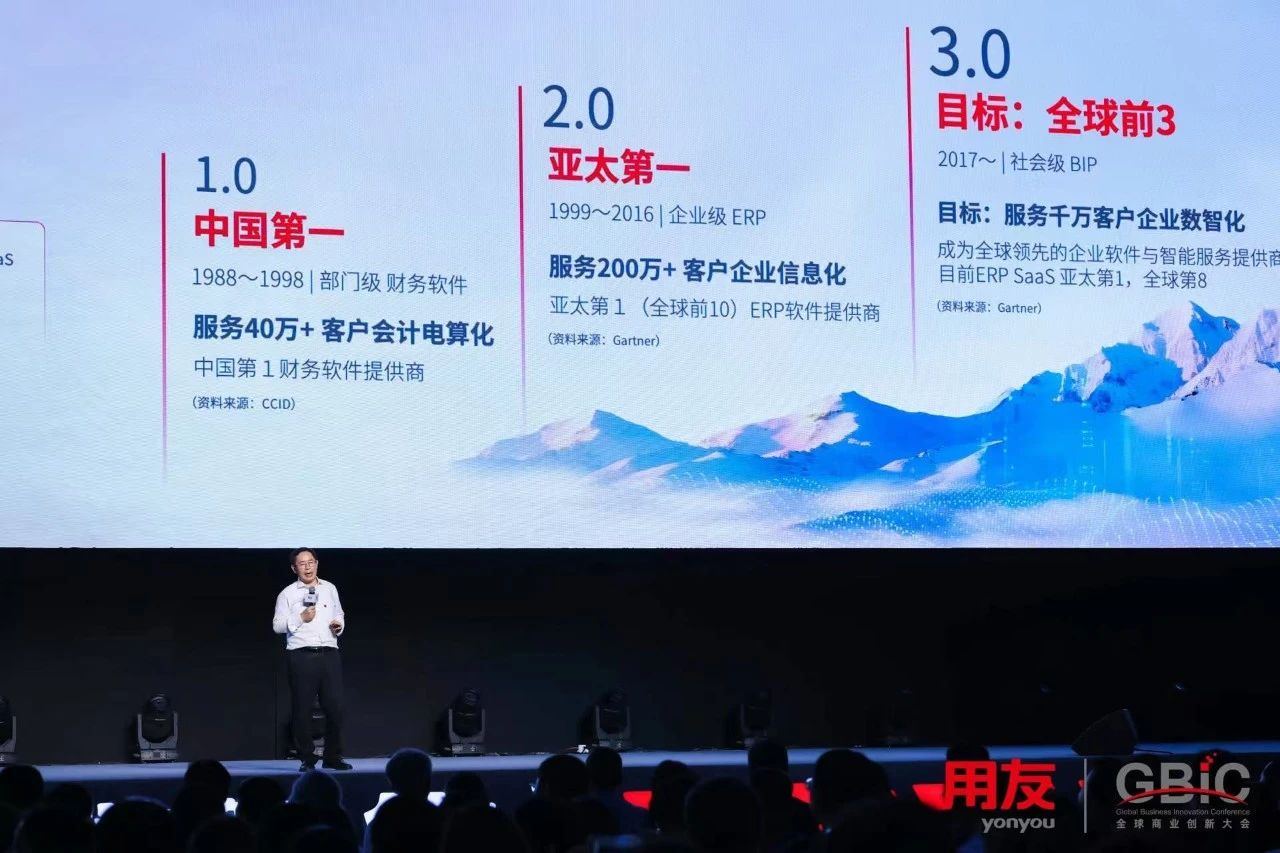
In the digital-intelligent era, Yonyou is accelerating the adoption of BIP with the goal of becoming one of the world’s top three enterprise software and intelligent service providers. Through joint innovation with customers, Yonyou aims to drive large-scale AI implementation in enterprises, help build new AI-powered productivity, and contribute unique Chinese expertise and momentum to global digital transformation.

